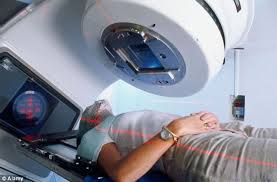
to overcome addiction you must face it fear and denial are obstacles
The phenomenon of addiction recovery may not be properly understood without the clear acceptance of the two adjectives (denial and fear). Let’s then try to make known of these facts about addiction recovery.
Denial
Addictions don’t happen overnight. Instead, recreational drug or alcohol use, over time, can lead to an addiction. Many times the user may not even be aware that this line (addiction) has been crossed. As well, some users who think they might be addicted believe it is only when they are hurting. The first step of beating addiction is admitting that you are addicted.
Fear
Admitting that you have an addiction means facing it, and that can be very difficult. Many addicts will experience various fears including fear of judgment when others find out, fear of letting down their loved ones, fear of losing their job, and fear of change. No one said that beating addiction would be easy, but it will be worth it.
When addiction set in the family many times your family members often don’t knows what to do. Their lives have been turned upside down. Every waking moment becomes weighed down with serious concerns. You may have promised many times to end your addiction and get help. As they look back, the explanations for the hours lost, the money spent and the emotional trauma, are now clearer. These losses are the many sad faces of addiction. You’re not yet ready to stop you may only be capable of empty promises and guilt-ridden apologies. What can they do? What can you do?
When you seek professional help, you and your family are scared. You may be more frightened than ever before. Your secrets will be exposed. You may find yourself willing to do anything at this point to avoid getting help. Lying (best with a straight face and indignation) is typical. You may promise anything to take the pressure off. If that doesn’t work, you lash back: “What right do you have to tell me what to do? If you don’t stop questioning me, our relationship is over.” The fear and hostility may be palpable.
Family members will find no easy ways to guide you into care. You’re in a cycle of denial and fear, fueled by shame, resentment, and deep inner pain. You feel so alone that you become hardened to the emotional outbursts and rage of loved ones. Professional help is strongly recommended if you’re at this point.
An intervention is an objective, caring, nonjudgmental process. You’re confronted with the reality of your actions by those adversely affected. The objective is to motivate you to accept help. Although your family is definitely involved, a professional interventionist guides the process.
The purpose of any intervention method is to help you confront your denial of problems and your fear of change, and to help you get into care. The interventionist is trained to communicate supportively, helping you accept your need for help and educating you and your family about addiction. She provides a link to treatment, ensuring that the right treatment center is found and contacted and that background preparation for your entry is completed. You’re invited to a meeting but you may not be told much about the purpose of the meeting. At the meeting, which is carefully planned and structured, concerned persons express love and caring while describing, in behavioral terms, how you’re affecting them. They express their wishes and needs for you to enter treatment.
Concerned persons need to state concerns clearly, without lapsing into accusations and anger. One simple skill is to communicate with an “I” message versus a “you” message. For example, “I feel sad” versus “You make me feel sad.” Describing behavior versus voicing feelings, opinions, and judgments is a learned skill. It is based on making references to the actions that are clearly observable, like those that could be captured on video or audiotape, for example.
During the intervention, the realistic consequences of not entering treatment are described, matter-of-factly. The consequences may include separation or divorce, the refusal of adult children to attend family functions, job loss, and loss of friendships. Other people can’t control your decisions and behavior. They can only control their responses to your decisions and behavior.
The intervention process often exposes weaknesses in the family system. Families who have long suffered from a member’s addictive behavior may be angry and punitive. Or they may be numbed into temporary or chronic states of no longer caring about what happens to you. Conversely, they may fear reprisals for breaking your secrets and the codes of silence that have helped you maintain your addictive behavior. The denial of problems and disbelief in the potential for change often add up to turning a blind eye to your addictive behavior. The interventionist has to balance the goal (getting you into treatment) with the complex communications of family members who may have old and new issues to settle.
Most interventionists and experienced clinicians are specialists in helping you move past your denial and increasing your motivation for treatment. To achieve this goal, they use a motivational interview.
The motivational interview has become one of the more powerful interventions to help you. Such an interview is conducted by a trained professional and is designed to help you go beyond your guilt, fear, and anger to participate in healthy decision-making. The interventionist helps you consider your decisions practically, in terms of what you stand to gain by change and what you stand to lose by change — and what you gain and lose by not changing. The goal is to help you make an informed decision about treatment.
There are ten general principles that influence the decision to intervene and that guide the intervention process. They include:
- Your behavior is causing significant damage in your life.
- Denial is preventing you from fully appreciating the damage the addiction is doing to you and your life.
- You’re unlikely to seek help on your own.
- The people involved with you can change the environment by changing the enabling system — making it more likely that you will seek help.
- The sense of genuine concern and understanding conveyed by the interventionist is one of the most important factors in influencing you to seek help.
- Anger and punitive measures have no place in interventions, because they increase your defenses, making it less likely you’ll seek help.
- The consequences for not going into treatment should not be designed to punish but rather to protect your health and well-being.
- You require an initial period of intensive treatment such as a 28-day residential program or an intensive outpatient program to address your denial.
- The intervention may be useful even if you aren’t likely to go to treatment.
- The intervention isn’t a confrontation. Rather, it is a well-organized expression of genuine concern for you, given a chronic and serious addiction problem.






